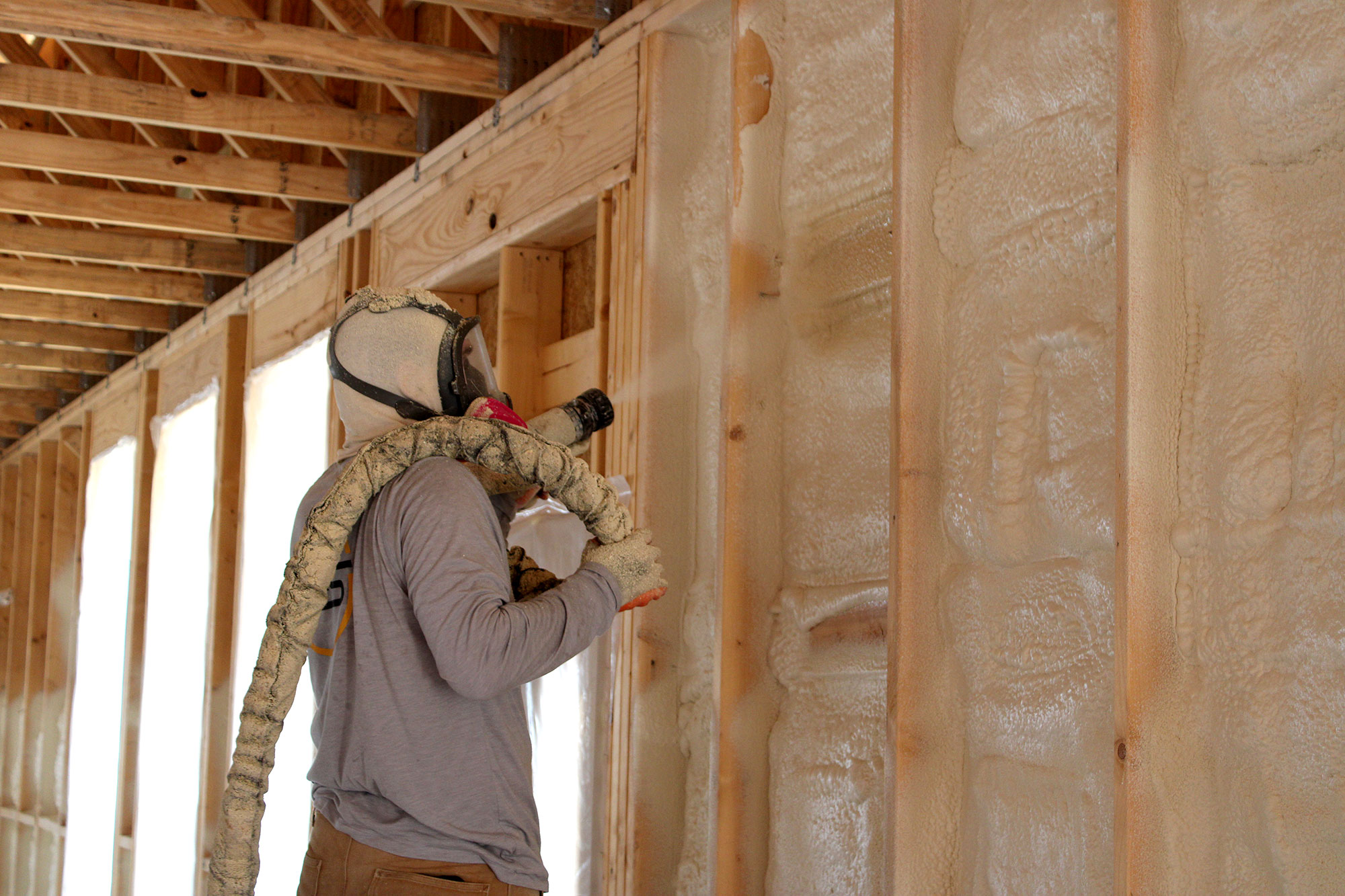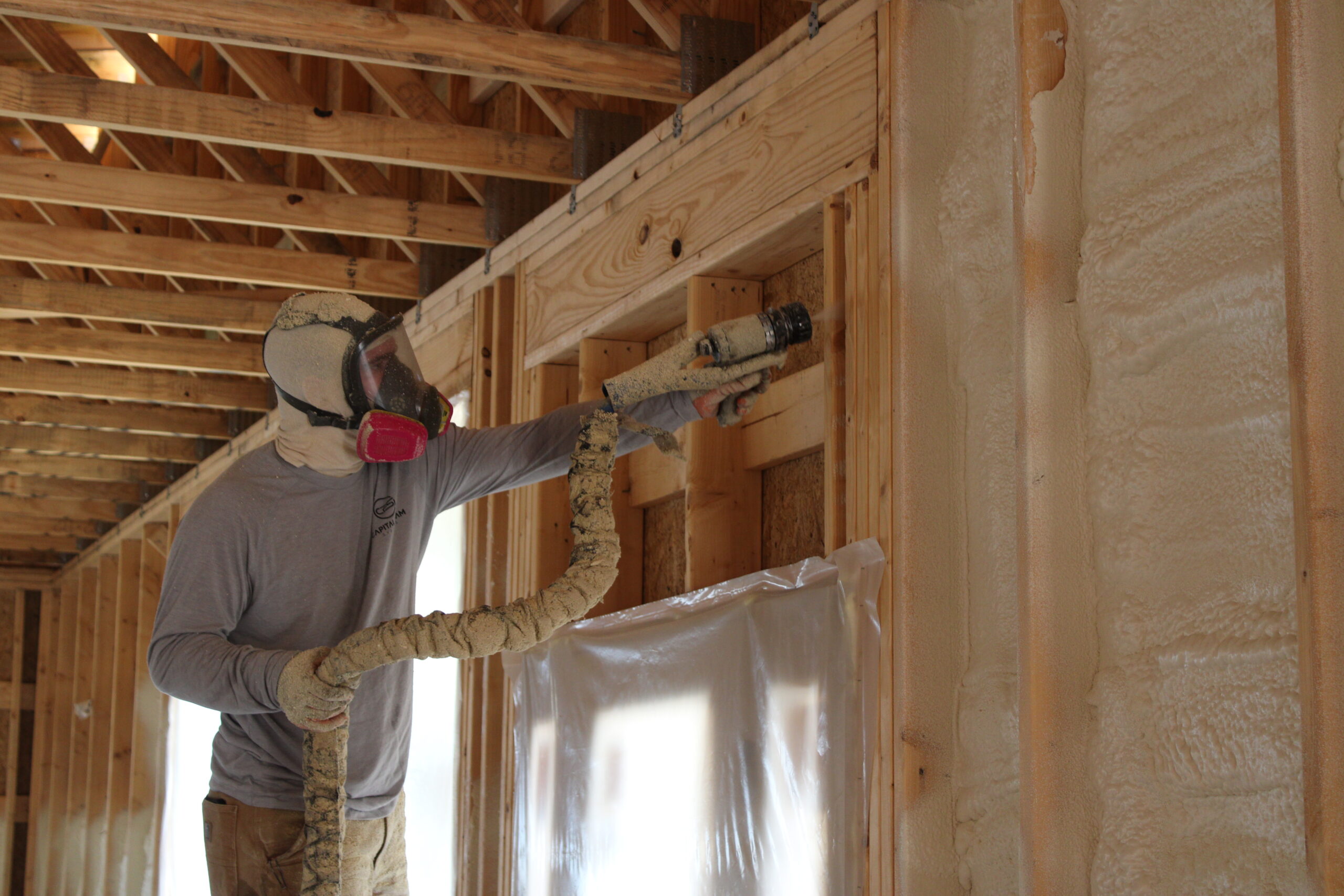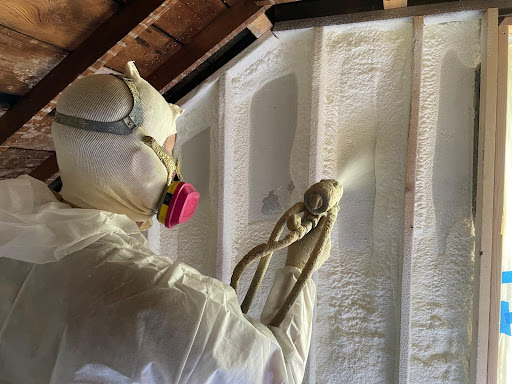Spray foam insulation is one of the most effective types of insulation on the market today. Expanding to fit into the smallest spaces, spray foam is known for its energy efficiency and versatility. However, misconceptions and myths often cloud its actual benefits.
Whether you’re a homeowner, contractor, or just curious about how spray foam can transform your living or working space, the following information will provide valuable insights to help you make an informed choice.
What is Spray Foam Insulation?
This type of insulation is a material formed when two chemicals meet and react to create a foam solution. When it’s sprayed, the foam dries in place and creates an effective vapor and air barrier.
Inside the foam insulation are pockets called “cells.” These pockets create barriers and air gaps that make it hard for heat and sound to penetrate. Also, since the foam expands into the areas where it’s sprayed, the pockets will reach into the smallest nooks and crannies.
These characteristics make spray foam an effective insulator for residential and commercial structures.
Types of Spray Foam Insulation
There are two different types of spray foam insulation. And the best option for a given situation depends on where the insulation will be used and where the building structure is located. While both are a combination of two chemicals and expand into place, how they insulate differs.
- Open cell: The individual cells are not entirely closed, making it lighter and less dense. When the foam expands and dries, it remains relatively soft and flexible.
- Closed cell: The individual cells are wholly closed and more densely packed, making this insulation more rigid than open cell. It can also improve the structural integrity of a building.
Myth 1: Spray Foam Insulation is Too Expensive
One of the most common misconceptions is that this form of insulation is prohibitively expensive. However, the cost of spray foam varies depending on the situation. Also, while the upfront cost may be higher than traditional insulation materials, the long-term savings can be significant. Because of its superior energy efficiency, spray foam insulation can drastically reduce heating and cooling costs over time. Further, it is durable and lasts longer than other types of insulation that may need replacing. For many, this cost savings makes spray foam a cost-effective solution in the long run.
Myth 2: It’s Harmful to the Environment
Another myth is that spray foam insulation is harmful to the environment. On the contrary, its a sustainable choice. Its high R-value (a measure of thermal resistance) effectively reduces energy consumption, thereby lessening your carbon footprint. Furthermore, many spray foam products now use eco-friendly blowing agents and are geared towards reducing environmental impact.
Myth 3: Spray Foam Causes Moisture Problems
By expanding to fit the shape of your walls and floors, spray foam creates a seal against cracks, crevices, air, and moisture. This airtight seal helps prevent moisture problems. Also, when properly installed, it’s non-absorbent. And because it can repel large leaks, spray foam insulation won’t become damp. As a strong product against leaks and humidity, spray foam provides enough airflow for natural evaporation and drying to occur. As a result, it prevents water from turning into mold, improving air quality.
Myth 4: It is Unsafe for Indoor Air Quality
Indoor air quality is critical to any living or working space and impacts everyone’s health. If you are considering spray foam insulation, it’s vital to have it installed by professionals who know how to prepare and mix the chemicals properly. They will also correctly ventilate the building before spraying foam.
After application, the insulation goes through a curing process. Once cured, it’s inert and does not emit harmful chemicals. It’s crucial to ensure proper ventilation during the installation process, and once set, spray foam does not off-gas. This makes it a safe choice for homes and commercial properties alike.
Myth 5: Spray Foam Insulation is a DIY Project
While the lure of a do-it-yourself project can be strong, spray foam insulation installation is not a DIY-friendly task. Proper installation requires specialized equipment and expertise. Professional installers understand how to prepare the mixture and achieve the right balance and thickness to ensure maximum efficiency and safety. An incorrectly applied spray foam can lead to underperformance and even structural issues.
The Capital Spray Foam Difference
At Capital Spray Foam, we understand the importance of a well-insulated property. We offer high-quality spray foam services, ensuring your home, building, or commercial property benefits from increased energy efficiency, enhanced comfort, and reduced energy costs.
Our team of qualified experts is equipped to handle all your spray foam insulation needs, providing professional advice and superior installation services. Contact us today to talk about your needs.







